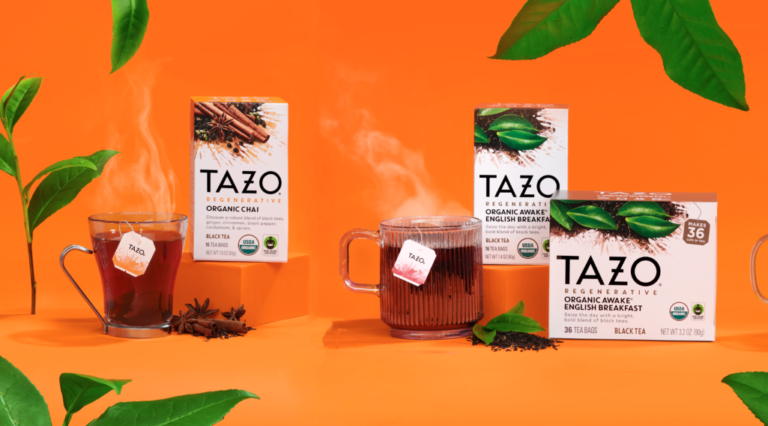Tazo Tea, a vibrant brand easily visible on supermarket shelves, has become a hub for tea enthusiasts seeking unique and flavorful blends. More than your average tea, Tazo stands out for its creative blends, including classic tea leaves with exotic fruits, spices, and herbs.
From the uplifting “Awake” to the relaxing “Passion,” Tazo offers a tasty adventure for every mood and palate. This dedication to pleasure, along with its convenient formats (tea bags, loose leaf and ready-to-drink), has earned Tazo a loyal following, making it one of the leading competitors in the ever-growing tea market.
The health of our planet is no longer a distant concern, but a pressing issue that is at the forefront of our minds. We are witnessing a global awareness of the impact of our decisions, a collective shift towards sustainability that permeates every corner of our lives.
From reusable grocery bags to plant-based diets, we’re embracing conscious consumption and reducing our environmental impact. This environmental revolution is not just a trend: it is a fundamental change in the way we interact with the world around us.
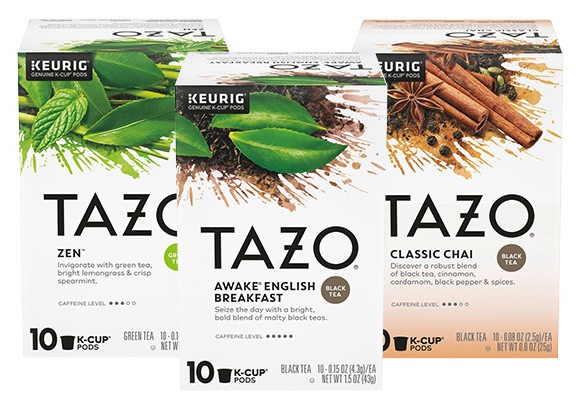
Tea bags, those handy little pouches of flavor, have a dark secret: They often contribute to a growing mountain of waste. While the tea itself is biodegradable, the bags themselves – which are usually made of plastic or non-biodegradable materials – end up in landfills for years, sometimes centuries.
This stark reality contrasts with Tazo’s image of being a socially conscious brand, causing confusion and concern among tea-loving environmental warriors. Tazo’s website offers mixed messages, with some pages touting compostability while others remain frustratingly vague.
This ambiguity leaves us with a lingering question: Are Tazo tea bags compostable, or can we enjoy our Tazo tea guilt-free?
Are Tazo Tea Bags Compostable?
Tazo’s current tea bag dilemma stems from their reliance on hemp filter bags. While hemp itself is a natural and sustainable fiber, the way Tazo processes and treats it renders it unfit for composting.
Non-biodegradable or Compostable
The processing involves binding hemp fibers with a synthetic resin, creating a material that sadly resists nature’s decaying dance. Think of it like wrapping your tea leaves in a plastic cocoon – no matter how soiled, the outer shell stubbornly holds up to the forces of nature.
To complicate matters further, the strings and tags attached to Tazo tea bags are also non-biodegradable, adding to the pile of unwanted waste. This means that even if you diligently remove the tea leaves and put the bag in your compost bin, it will be an unwelcome guest, refusing to break down and contribute nutrients. .
So, there you have it – the not-so-eco-friendly truth about Tazo’s current tea bag situation. While the brand strives for sustainable practices in other areas, this particular choice falls short of the compostable mark.
Statement From Tazo
According to Tazo’s official website, their tea bags are made with a blend of natural fibers such as abaca, hemp, and wood pulp, which are all compostable materials. However, it is important to note that the tea bags may contain a small amount of plastic, which is not compostable 1.
Components of the Tea Bag
- Hemp filter:Although seemingly natural, the hemp in Tzu’s tea bags is treated with a synthetic resin during processing. These resins act like glue, binding the hemp fibers together and forming a barrier against decomposition. This treated hemp, despite its soil origin, becomes a plastic-like material that stubbornly resists biodegradation.
- String:Often made from nylon or polyester, the string that holds tea bags together is another non-biodegradable culprit. These synthetic fibers are designed for strength and durability, qualities that translate into undesirable longevity in the compost pile. These delicious teas will last long after they’re gone, leaving behind microplastics that harm the environment.
- Tag:Don’t let the small size fool you – the tag is usually made from a thin film of polypropylene, another plastic hero known for its resistance to rotting. Like string, it will stay in your compost bin, refusing to break down and contribute valuable nutrients.
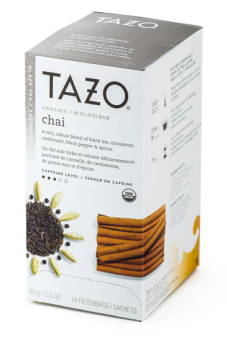
So, while the tea leaves inside might be eager to join the compost party, the hemp, string, and tag act as unwelcome gatecrashers, sabotaging the entire process and leaving you with a not-so-eco-friendly tea bag on your hands.
Tazo’s Transition to Plant-Based Solutions
Amidst the hardships of composting, a ray of hope emerges! Tazo, acknowledging concerns about the environmental impact of its tea bags, has embarked on a mission to transition to plant-based alternatives. This means we may soon say goodbye to the hemp, string and tag trio and welcome tea bags made from biodegradable materials like cornstarch or cellulose.
While Tazo has yet to announce a definitive timeline, their commitment to eco-friendly packaging is clear. They are actively exploring and testing plant-based options, aiming to provide the same delicious tea experience with a significantly smaller environmental impact.
Imagine tossing your Tazo tea bag into the compost bin, guilt-free and knowing it will turn into nutritious goodness for your garden.
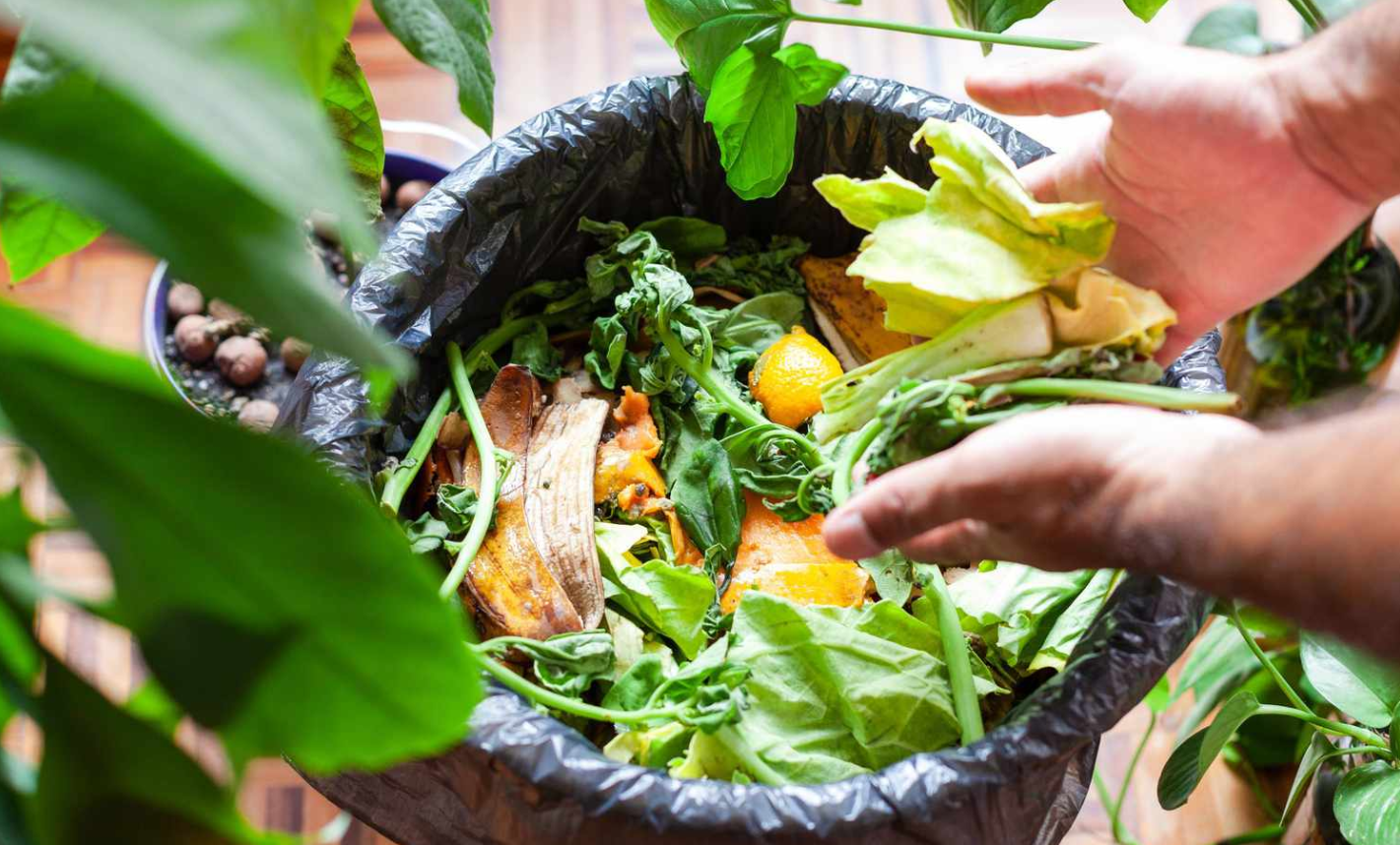
This shift toward plant-based solutions isn’t just good news for compost enthusiasts. It’s a win for the planet. By reducing plastic waste and promoting biodegradability, Tazo is taking a step towards a more sustainable future for tea lovers and the environment.
So, while we patiently await the launch of the official plant-based tea bag, let’s pick up a (compostable) cup for Tazo to green up our behavior and give our tea drinking ritual a little more ground. Make a commitment to adapt.
Lack of a Concrete Timeline
It’s true, the exact date when we can all ditch our Tazo tea bags and compost remains a mystery. Tazo hasn’t nailed down a solid timeline yet, and understandably so. Switching to an entirely new material requires careful research, testing, and ensuring that the tea experience remains optimal.
We wouldn’t want pleasure to be sacrificed on the altar of sustainability, right?
However, the lack of a definitive history does not diminish Tazo’s true commitment to the environment. They are actively exploring different plant-based options, collaborating with experts, and rigorously testing their biodegradability and functionality.
This dedication is evident in their transparent communication. They are openly acknowledging the problem and actively working towards a solution.
Think of it this way: Tazo is on a quest to find the perfect compostable tea bag – the holy grail of guilt-free tea sipping. They’re not just throwing some leaves into the corn husk and calling it a day. They’re taking their time, making sure the new bags deliver the same delicious taste, brewing experience, and convenience we’ve come to expect from Tazo, all while minimizing their environmental impact.
So, while we await the launch of the official plant-based tea bag, let’s appreciate Tazo’s commitment to sustainability and recognize that even without a concrete history, they’re steering their ship toward a greener future. have been. And who knows, maybe that amazing compostable tea bag will show up sooner than we expect, making our next cup of tazo even more satisfying!
Potential Benefits of Plant-based Bags
Imagine a world where your Tazo tea bag, with its leafy secrets safely tucked inside, happily disappears into your compost bin, transforming into nutrient-rich goodness for your garden. That’s the magic of plant-based tea bags!
These eco-friendly alternatives boast several benefits over their traditional counterparts:
- Faster decomposition: Gone are the days of tea bags lingering in landfills for centuries. Plant-based materials like corn starch and cellulose break down much quicker, typically within 60-90 days. This means less waste, faster nutrient cycling, and happier soil!
- Reduced environmental impact: By ditching plastic and fossil fuels, plant-based bags significantly reduce the carbon footprint of your tea habit. This translates to less greenhouse gas emissions, less reliance on non-renewable resources, and a smaller overall impact on the planet.
- Minimal microplastics: Those tiny plastic fragments that can harm wildlife? Plant-based bags minimize their release, keeping our oceans and ecosystems healthier.
And it’s not just about the environment – plant-based bags often offer other advantages:
- Improved taste: Some studies suggest that plant-based materials can actually enhance the flavor of your tea, allowing the delicate notes to shine through without any plastic interference.
- Enhanced brewing experience: Say goodbye to leaky bags and hello to a cleaner, more enjoyable brewing process. Plant-based materials can be designed for optimal water flow and filtration, resulting in a perfect cup every time.
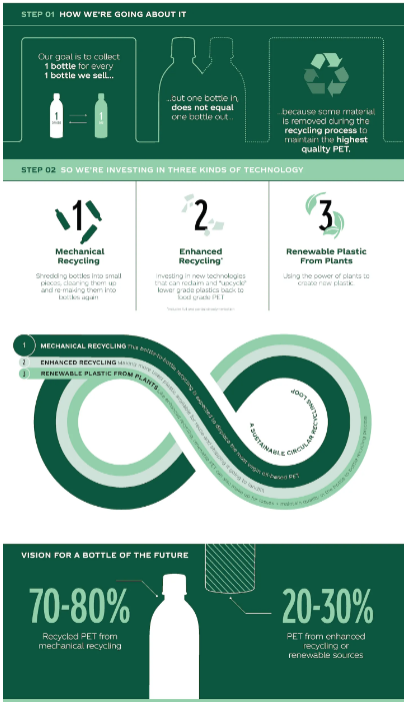
So, the switch to plant-based tea bags is a win-win for everyone – from the Earth and its creatures to your taste buds and your composting pile. It’s a small change with a big impact, and Tazo is leading the charge towards a more sustainable future for tea lovers everywhere.
Tazo Tea Bag Compostability Comparison
| Tea Bag Type | Compostable | Notes |
| Hemp Filter Bags (Current) | No | Not biodegradable or compostable (includes string & tag) |
| Plant-Based Bags (Future) | Yes | Biodegradable and compostable (materials still under development) |
| Loose Leaf Tea | Yes | Tea leaves are fully compostable |
Composting Tea Leaves: A Small Step, Big Impact
While we eagerly await Tazo’s transition to plant-based tea bags, there’s still an easy way to enjoy your tea: Fertilize the tea leaves! Although the bags themselves are not biodegradable, the leaves inside are packed with nutrients and easily break down in your compost bin, enriching the soil for your garden or house plants.
How to Compost Your Tazo Tea Leaves
Here’s how to compost your Tazo tea leaves:
Step 1: Open the Tea Bag
- Gently tear open the tea bag to expose the tea leaves. This increases the surface area exposed to microbes, allowing for faster decomposition.
- For extra eco-friendliness, try using loose leaf tea instead of tea bags. This eliminates the non-biodegradable bag altogether.
Step 2: Mix with other materials
- Create a balanced compost pile by mixing your tea leaves with other materials:
- “Browns”: dry leaves, shredded cardboard, paper towels, etc.
- “Greens”: fruit scraps, vegetable peels, coffee grounds, etc.
- Aim for a 3:1 ratio of browns to greens for optimal decomposition.
Step 3: Maintain Moisture
- Keep your compost pile slightly moist, like a damp sponge. This creates a favorable environment for beneficial microbes to thrive.
- If the pile appears dry, add water sparingly. Avoid overwatering, as it can lead to anaerobic decomposition and unpleasant odor.
Step 4: Aerate the Pile
- Oxygen is crucial for efficient composting. Turn or fluff your compost pile with a pitchfork or shovel every few days.
- Aeration helps break down materials faster and prevents the formation of anaerobic pockets.
Bonus Tip:
- To further accelerate the decomposition process, consider adding a compost activator or inoculant. These often contain beneficial microbes that can help break down materials more quickly.
By following these simple steps, you can transform your used tea leaves into valuable compost, giving them a second life and reducing your environmental footprint. It’s a small action with a big impact, and a great way to enjoy your Tazo tea with a clear conscience, even while we wait for the fully compostable bags to arrive.
Enjoy your guilt-free cup of Tazo tea, knowing that the leaves are contributing to a healthier planet!
Benefits of Composting Food Waste
Composting food waste, including tea leaves, goes beyond simply reducing waste. It offers a multitude of environmental benefits:
- Reduces methane emissions: Food waste in landfills decomposes anaerobically, producing methane, a greenhouse gas 25 times more harmful than CO2. Composting diverts food waste from landfills, significantly reducing methane emissions and contributing to mitigating climate change.
- Creates Nutritious Soil: As food scraps decompose, they turn into nutrient-rich compost, a natural fertilizer full of organic matter, essential minerals and beneficial microbes. This compost nourishes the soil, increasing its fertility, water retention and overall health.
- Reduces reliance on chemical fertilizers: Manure acts as a natural soil amendment, reducing the need for synthetic fertilizers. It promotes sustainable agricultural practices, reduces chemical pollution, and protects soil biodiversity.
- Improves Soil Structure: Manure improves soil structure, promotes better drainage and aeration. This allows plants to have deeper roots, increasing their resilience to drought and disease.
- Conserves resources: Composting diverts food waste from landfills, reducing pressure on waste management systems. It conserves precious resources and energy, and contributes to a more sustainable future.
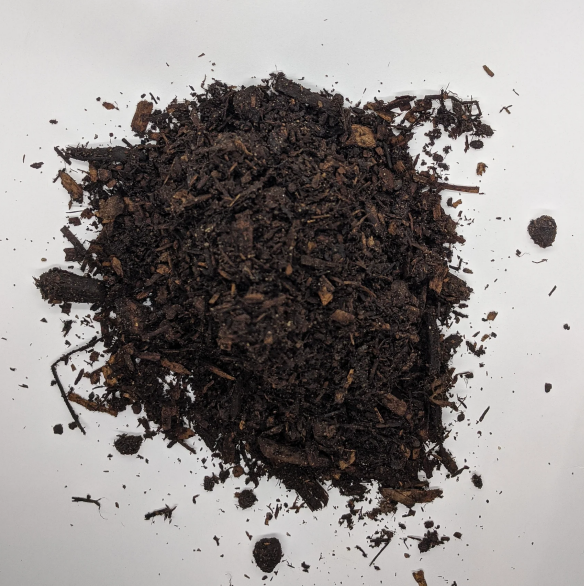
By composting your tea leaves and other food scraps, you play an important role in closing the loop, creating a cycle of life from food to soil and back again. This simple process promotes a healthy planet and increases the well-being of your plants and gardens.
Key Points about Tazo Tea Bags and Composting
- Current Tazo tea bags are not compostable. Their hemp filter material, string, and tag are all non-biodegradable.
- Tazo is committed to transitioning to plant-based tea bags. This switch will make the bags fully compostable, reducing their environmental impact.
- While we wait for the plant-based bags, you can still compost the tea leaves. Simply tear open the bag, mix the leaves with other compost materials, and keep the pile moist and aerated.
- Composting tea leaves offers various environmental benefits. It reduces methane emissions, creates nutrient-rich soil, and promotes sustainable agriculture practices.
By supporting Tazo’s transition to plant-based tea bags and composting your tea leaves, you can contribute to a greener future and enjoy your cup of Tazo with a clear conscience.
A Call to Conscious Tea Consumption
While the road to full compostability is not yet paved, Tazo’s commitment to plant-based tea bags paints a bright and sustainable future for tea lovers and the environment. Their dedication to the environment gives us hope for a future where enjoying a delicious cup doesn’t come at the cost of the planet.
As conscious tea consumers, we can play an important role in accelerating this positive change. By actively seeking out brands committed to sustainability, supporting their eco-friendly initiatives, and composting our own tea leaves, we can collectively drive change towards a greener tea landscape.
Let’s join hands with Tazo on this journey to a more sustainable future. Let’s choose tea brands that care about the planet, compost our tea leaves, and raise our voices for eco-friendly solutions. Together, we can create a brighter future, one delicious and guilt-free cup at a time.
So, the next time you reach for your favorite tzu tea, remember: you’re not just enjoying the drink. You are participating in a positive movement to make tomorrow greener. Sip, taste, and make your way into a world where sustainability isn’t just a buzzword – it’s standard.
Composting Resources and Organizations
Compost guides and tutorials:
Composting Organizations and Communities:
- US Composting Council: https://www.compostingcouncil.org/
- Compost Foundation: https://compostfoundation.org/
- The Rodale Institute: https://rodaleinstitute.org/
- Local community composting programs: Many cities and towns offer composting programs and resources. You can search online or contact your local waste management department for information.
Additional Resources:
- Worm Composting for Beginners: https://www.redwormcomposting.com/
- Compost Tea: A Complete Guide: https://rodaleinstitute.org/blog/compost-tea-a-how-to-guide/
By exploring these resources and connecting with composting communities, you can gain valuable knowledge, gain inspiration, and start your own composting journey. Remember, even small changes can make a big impact, and composting your tea leaves is a simple yet powerful way to nourish your garden and contribute to a healthier planet.
FAQs about Composting Tazo Tea Bags
Q: Are all Tazo tea bags compostable?
A: No, not all Tazo tea bags are compostable. Tazo has recently begun transitioning to plant-based bags, but many of their traditional tea bags are made with non-compostable materials like nylon and polypropylene.
Q: How can I tell if a specific Tazo tea bag is compostable?
A: Look for the “compostable” label on the packaging. If you don’t see it, you can also visit the Tazo website or contact their customer service for information on specific products.
Q: What happens if I compost a non-compostable Tazo tea bag?
A: Non-compostable tea bags won’t break down properly in your compost pile and can contaminate the finished compost. They may also contribute to microplastics pollution in the environment.
Q: What are the benefits of composting Tazo tea bags?
A: Composting your tea bags is a great way to reduce waste, improve soil health, and support sustainable practices. The tea leaves and plant-based bag materials add valuable nutrients to your compost.
Q: Are there any alternatives to using tea bags altogether?
A: Yes, you can ditch the bags and use loose leaf tea instead. This gives you more control over the brewing process and eliminates the waste from tea bags. Loose leaf tea can also be composted directly.
